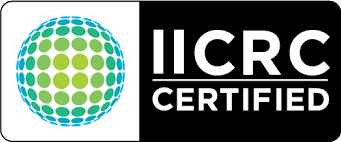Frequently Asked Questions About Disaster Restoration
At The Water Damage Pros we’ve put together a list of questions we hear from a lot of our clients & prospective clients. If you have a question you think we missed, please drop as a line via the form below and we’ll get back with you as soon as possible.
Soft clogs are the main cause of sewage back ups (Wipes, paper towels etc) when these are flushed it clogs the line and any running water will back up.
No. As the homeowner, you have the legal capability of picking whichever restoration company suits your needs.
The mold may be coming back because the source of the water has not been fixed correctly or the remediation has not been.
The best way to be certain if your home is safe after a fire is to have a certified FSRT technician do an inspection for soot and smoke particles throughout the entire house. Soot is carcinogenic and can be harmful.
The best way to know if you need restoration services is to call a certified restoration company to assess the damage.
To provide mold remediation & mold testing or mold inspections would be a conflict of interest. You should get a third party to inspect for mold and once again when the mold remediation job is complete. This helps ensure that the mold remediation job was done correctly.
A Mold remediation company should be hired when visible growth is present or the customer has received hygienist results with increased spore counts.
Insurance will cover sewage back ups if they are related to a soft clog. Most of the time insurance does not cover hard clogs.
Sewage is considered to be “highly contaminated water” proper clean up is recommended to prevent exposure to:
- Blood born pathogens
- Disease/sickness
- Contamination.
The first thing to do after the fire has been extinguished is to immediately contact insurance and discuss options (temporary housing, allowances etc. are sometimes approved by insurance)
In case of sewage back up, stop running water in the home and contact a plumber to clear the line as soon as possible. A call to a mitigation company would be the next step.

